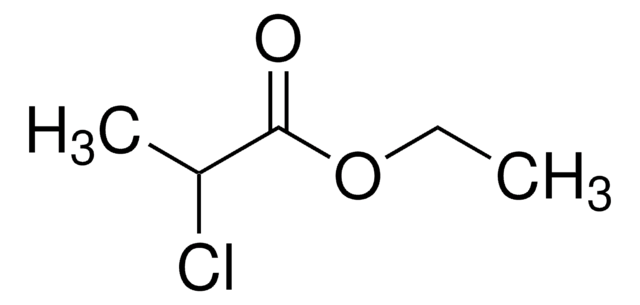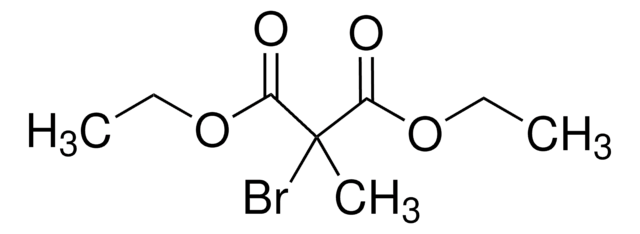167185
Methyl 2-bromopropionate
98%
Synonym(s):
(±)-2-Bromopropionic acid methyl ester, (±)-Methyl 2-bromopropionate, 2-Bromopropanoic acid methyl ester, 2-Bromopropionic acid methyl ester, Methyl (±)-α-bromopropionate
About This Item
Recommended Products
Assay
98%
form
liquid
refractive index
n20/D 1.451 (lit.)
bp
51 °C/19 mmHg (lit.)
solubility
water: insoluble
density
1.497 g/mL at 25 °C (lit.)
SMILES string
COC(=O)C(C)Br
InChI
1S/C4H7BrO2/c1-3(5)4(6)7-2/h3H,1-2H3
InChI key
ACEONLNNWKIPTM-UHFFFAOYSA-N
Looking for similar products? Visit Product Comparison Guide
Related Categories
Application
Signal Word
Danger
Hazard Statements
Precautionary Statements
Hazard Classifications
Eye Dam. 1 - Flam. Liq. 3 - Skin Corr. 1B - STOT SE 3
Target Organs
Respiratory system
Storage Class Code
3 - Flammable liquids
WGK
WGK 3
Flash Point(F)
125.6 °F - closed cup
Flash Point(C)
52 °C - closed cup
Personal Protective Equipment
Certificates of Analysis (COA)
Search for Certificates of Analysis (COA) by entering the products Lot/Batch Number. Lot and Batch Numbers can be found on a product’s label following the words ‘Lot’ or ‘Batch’.
Already Own This Product?
Find documentation for the products that you have recently purchased in the Document Library.
Customers Also Viewed
Our team of scientists has experience in all areas of research including Life Science, Material Science, Chemical Synthesis, Chromatography, Analytical and many others.
Contact Technical Service















